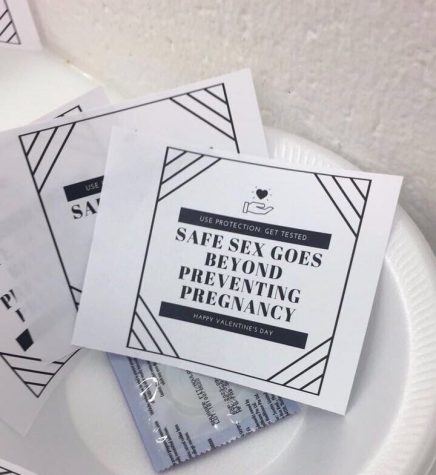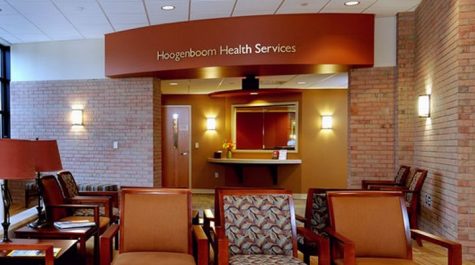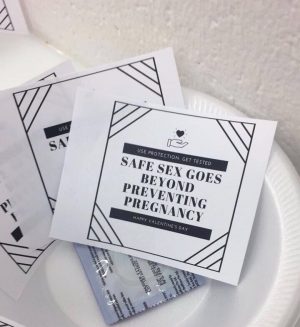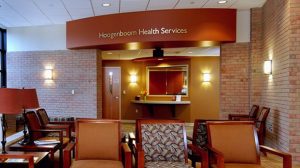Let’s talk about it: safe sex
Let’s talk about safe sex. I know, it’s a taboo topic in many Christian circles, including Calvin, but the hard and fast truth is that sex happens, no matter how much individuals and institutions try and prevent it. As was written in the opinion piece “Let’s Talk About It: A letter to Calvin Parents,” “The question isn’t always whether to have sex or not to have sex, it’s about whether abstinence-only sex education is going to keep students, who, again, are already having sex, from doing it safely.”
It wasn’t until this Valentine’s Day that I learned Calvin, because of its association with the Christian Reformed Church (CRC), which supports abstinence before marriage, does not provide safety for sex through health services or any other platform. Yes, they provide birth control through health services, but birth control does not prevent STDs, only unplanned pregnancies. Health services doesn’t provide condoms because prescriptions aren’t required for purchase. It could also be that Calvin doesn’t provide condoms because of its close ties to the CRC and fear of the message it would portray.
Now, don’t get me wrong, I wholeheartedly agree with the CRC and Calvin on their stance of abstinence before marriage, but I also don’t condemn those who have decided not to hold this stance. I’m not writing to try and change people’s minds surrounding sex among Calvin students, but because I care deeply about those I love on this campus, and I care for their safety as human beings above all else.
I’m not saying that Calvin needs to stop promoting abstinence, I’m saying they need to look at the reality and allow options for safe sex. STDs are real. I believe the “Condom Caper” has a good underlying message that we need to hone in on as a college. The condoms included awareness for STDs, and they didn’t blatantly encourage sex outside of marriage.
I am an RA, and as an RA I have felt a new and deeper appreciation for what it looks like to love one’s neighbor. Loving one’s neighbor involves caring for their wellbeing and safety, and an element of safety is safe sex.
I believe everyone has had “the talk.” Maybe many “talks.” I would venture to say some were even given condoms in school during “the talk.” Why is that? Are schools encouraging sex? Absolutely not, and nor should they. Schools have the same mentality that parents do when they give their children “the talk.” Authority figures can do the best they can to promote a lifestyle they think is best for those under them, but there is only so much they can do. Because students and kids do not follow schools’ and parents’ teachings, do they allow their students and kids to suffer? No. At least I hope not. Discipline is healthy; suffering isn’t.
Schools can promote abstinence, but the truth is students aren’t going to always choose abstinence. Having access to a condom isn’t going to change someone’s mind as to whether or not they are going to have sex outside of marriage, but it does give them a safe option. The only thing a parent and a school can do is educate, and the rest is up to the students. If sex is going to happen, it should happen in a safe way, and there should be options for students to have access to birth control and condoms. Not just birth control. Not allowing access to condoms feeds into ignorance that people don’t have sex simply because they have signed a student contract.
A common misconception is that providing access to condoms and birth control will increase sex. The “American Journal of Public Health”’s research on high schools that provided contraceptives and those that didn’t finds that, “Adolescents enrolled in schools with condom availability programs were no more likely to report ever having had sexual intercourse or having been sexually active in the preceding 3 months. In fact, they were slightly less likely to report having had sexual intercourse.” Supporting previous research, the data supported benefits of making condoms available to students. The research even found that rates of sexual intercourse were not higher at schools where condoms were made available. Further, the researchers found support to previous research that suggested that condom distribution within the schools doesn’t lead to sexual activity. The American Journal of Public Health’s article continues, “In fact, adolescents enrolled in condom availability schools were less likely to be sexually active or to report recent sexual intercourse.” Further research from the AIDS and Behavior journal on the effects of school condom distribution confirm that, “…no studies reported increase in sexual activity.”
Sex happens. No parent or university can stop that. But they can provide safety for those who do decide to engage in sex outside of marriage. I hope this is seen as a cry to promote holistic safety and health on Calvin’s campus, not just the safety and health that the college believes in.











Stephanie Hoekstra • Mar 13, 2019 at 8:40 am
Hi McKinley, I am a follower of Jesus and read the Bible every day. So I will comment based on what I read in Gods word. God created us and loves us dearly and did not leave us to our own wisdom. His word is a great instruction manuel on how to live best. So I would argue that God, not just the CRC, is the one who supports abstinence before marriage. You see God in His wisdom instructs us to live like this because He knows that the negative consequences of sex outside of biblical marriage are more than an unplanned pregnancy or a sexual transmitted disease.
Your argument says we should care for each others well being. I agree. Our well being goes beyond our physical well being, we are so much more than the sum of our body parts. Gods design takes into account our entire being, our heart and soul, who we are as a person.
You argue that the best way to deal with living outside of Gods design is to mitigate the consequences. Should we then prepare for marriage by handing out information to engaged couples on how to take steps to reduce the damage when their spouse commits adultery? Should we teach our business students how to avoid jail time or a least reduce the sentence when they steal?
I would say if we really care about each others well being lets encourage each other to live within God’s design. His plan for us is trustworthy not only because He created us but He demonstrated His love for us, while we were still sinners Christ died for us. Thoughts to consider, Stephanie Hoekstra